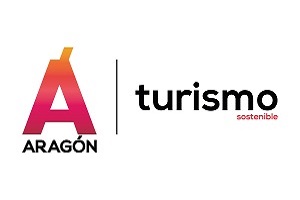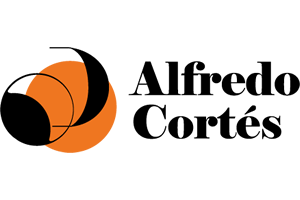Ana María Farré Gaudier is director of the Ibercaja Campus for Business Development at Fundación Ibercaja. She works to promote female leadership through different associations in Spain and Africa, such as Mujeres Influyentes de Aragón, Business Professional Women or the NGDO Harambee. Now she has embarked on the project ‘Women leaders in education in the 21st century’.
Ana, you always talk about shared leadership between men and women?
I really like to focus on the richness of diversity. Men and women complement each other. Equality is diversity. I like to talk about feminism from the point of view of female leadership that adds up, not that confronts. It’s important not to get lost in discussions that miss the point.
I decided to commit myself to this cause of women’s leadership precisely to send a message of shared leadership. Women’s leadership is not exclusive, women and men complement each other in the way we manage and resolve issues. We are absolutely complementary in order for society to be more egalitarian, it needs both perspectives.
Are women too preoccupied with proving that we can do the same as men?
It is important to focus more on highlighting what we are positive and what we can contribute than getting lost in confrontation. I believe in equal opportunities and equal rights, but also in the difference in roles, that the incorporation of women serves to enrich society. Women are different in terms of roles, sensitivities… Everything that refers to power skills, because women have them as a matter of course.
 What are the ingredients of leadership?
What are the ingredients of leadership?
We are facing a time of unprecedented change and this means that new leadership is needed. The other day I heard a definition that I loved. It said that the leader was a host, a welcoming person, who is capable of having that collective intelligence. The pandemic has shown that we can only move forward together, now it is important to add and collaborate. Women have all this as standard with an open, plural attitude, they know how to count on the team, without prejudices… It is essential to have the capacity to adapt, because the best adapts, not the strongest, survives.
This also needs to be trained.
Yes, in small opportunities that arise during the day. I always say that leadership has a genetic part, but there is a lot of attitude and choice.
I would like to quote a phrase of yours: “Forget India, forget China, forget the Internet, the real revolution that will drive economic growth is right next door and it is women”.
I think it is very important to have women in all positions in society. It is a time of transhumanism, of digitalisation and in which the entry of artificial intelligence into society plays a very important role, I think it is essential to include women in the design of technology so that these designs are made from the perspective of both men and women. Doing it from a single perspective, the male perspective, impoverishes us as a society. That’s why I encourage women to get involved in technology development and programming.
You are very committed to the role of women in society and actively participate in associations and events for the cause. Can you only achieve your objectives through associationism?
You have to take a step in this direction. When you already have a professional career, it is very important to commit ourselves as women to give visibility to female leadership, to network and to set up the ladder. We must be able to help each other and give other women the opportunity to stand out. As director of the Ibercaja Campus for Business Development of the Ibercaja Foundation, I am very happy to be able to contribute to this objective in different ways, for example, with the LiderA Programme for pre-managers, managers and board members, in collaboration with Directivas de Aragón.
How important is it to develop these skills in order to reach representative positions?
There is a glass ceiling, but sometimes we set ourselves a concrete ceiling, so we have to develop these kinds of skills that we have not trained before in order to acquire them. I think it is fundamental, I believe that women have to reach management positions. These equality plans that exist in these companies must be fulfilled, but they must be fulfilled because of professional excellence, not because of the quota.

What is the work of the network ‘Mujeres Influyentes de Aragón’, of which you are a founder?
I am a co-founder along with more than twenty other founders. It is an initiative that arose from the journalist Beatriz Recio, who runs the company Woman Talent and is the president of the network Mujeres Influyentes de España (Influential Women of Spain). We were the second autonomous region to have this network. It is a multidisciplinary platform, as it is not only for the business sector. It brings together journalists, businesswomen, members of the military, politicians… The diversity of the network is its richness. Its aim is to make female talent visible and we have organised several events to do so. I remember one in a very special way, it was at the IAACC Pablo Serrano. It was my turn to present Esther Borao as a young talent, long before she became director of ITAINNOVA.
The book ‘Mujeres lideres en la educación del siglo XXI’, published after the pandemic, is part of a personal project to show the leadership of women in education.
The project was born by joining my two great passions, education and women’s leadership. Education is a subject that comes from my childhood because my parents founded a school and my professional career is closely linked to education and educational innovation. As I am also very involved in the visibility of female leadership, there is a moment when I realise that there are many publications that talk about women politicians, managers, scientists… and I miss the opportunity to talk about women leaders in education. The book was born with this vocation of justice.
When you think of great references in education, the names of men always appear, such as Richard Gerber, Ewan McIntosh or even José Antonio Marina.
What about women, when there have always been and still are great female teachers?
Of course. There are women leading innovative projects in education, but women invest very little in marketing and remain anonymous. And there is also a lot of imposter syndrome. When I contact the 22 women leaders in education to write the book, some of them are surprised that I called them to participate in the project.
What do you want the book to do?
I want the book to serve as a debate on education. That through the book a debate is established on leadership, emotional education, neuroscience, new architectural spaces, nature… It is a look at education, but through women. I am happy because it is a premonitory book, it comes at an opportune moment for the voices of accredited women, such as the ones that appear in it, to lead the debate.
The book is part of a more ambitious project.
Yes, the in-person presentations of the book have been restricted and the scope of the project has been online for the moment. Training activities have been developed to give these women a voice. The next step is to form a community of women leaders in education in order to share experiences, good practices, make projects visible, etc.














